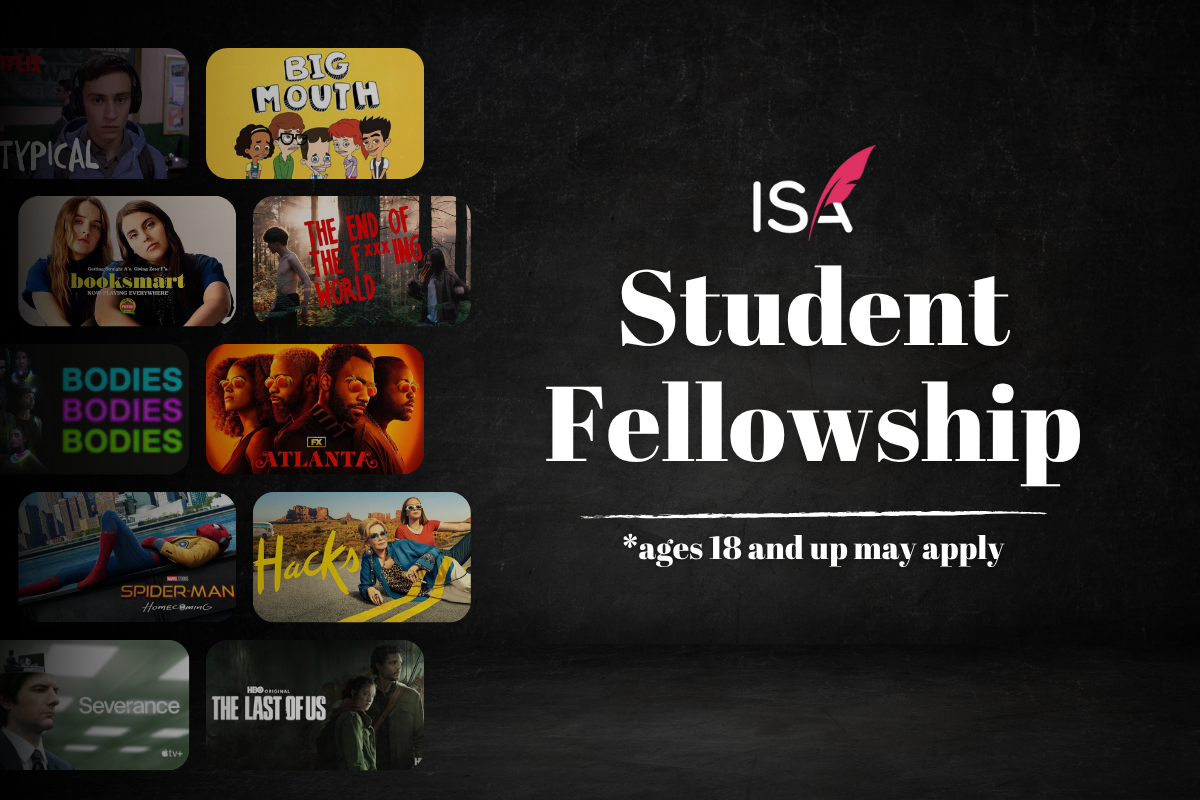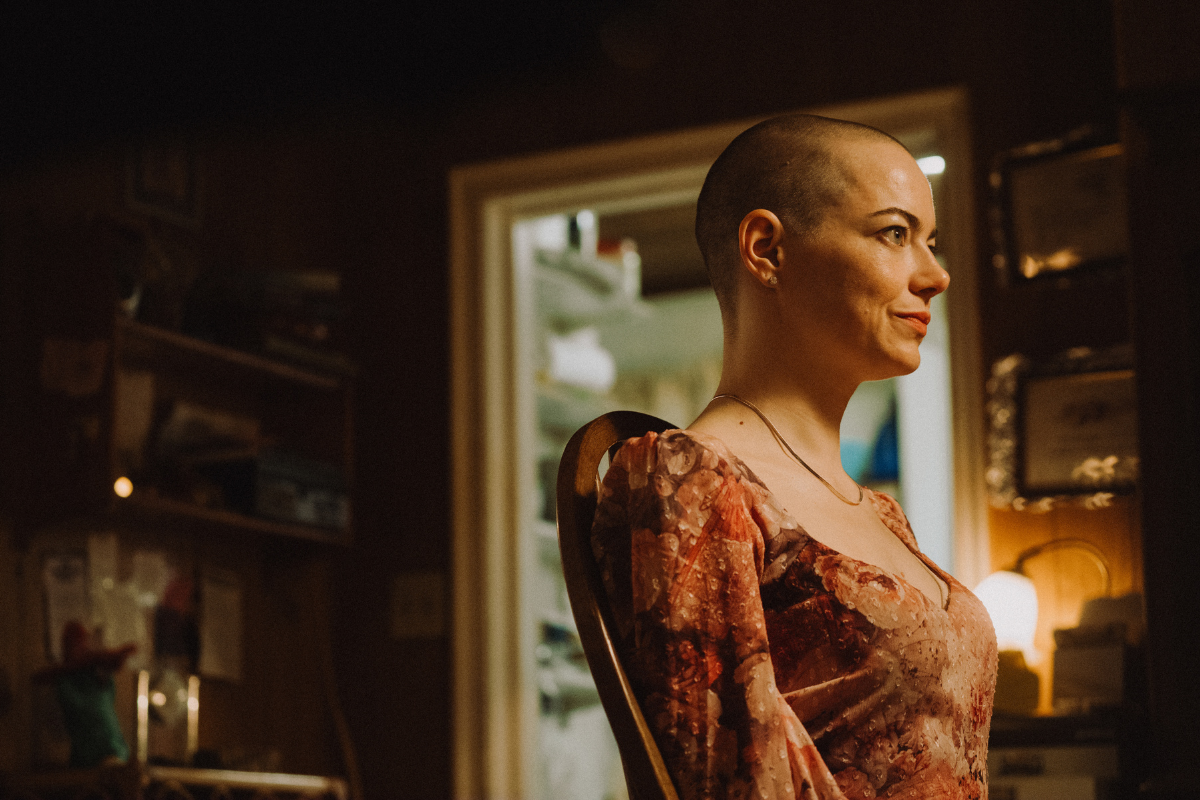Sci-Fi Circuit: Screenwriter Adam Pachter on Landing a Deal with Amazon Studios
Besides some of the standard approaches to breaking into the spec market, like querying agents and managers, attending pitchfests, or submitting to contests, what else is there for a sci-fi…
Besides some of the standard approaches to breaking into the spec market, like querying agents and managers, attending pitchfests, or submitting to contests, what else is there for a sci-fi spec writer looking to get a little industry traction?
Amazon Studios has been relatively new to the industry. They've undergone a number of changes to their approach to developing projects since their inception, and I've been curious to find out more about how it all works -- from someone who's seen it from the inside out.
I reached out to Adam Pachter, who recently landed an option with Amazon studios for his sci-fi script Hiber to find out more about how the Amazon Studios process works and what it's meant for him so far.
Adam, thanks so much for being here with us today to talk about your recent development agreement with Amazon Studios for your sci-fi script Hiber. First, can you tell us what Hiber is about and how you were inspired to write it?
It’s a fun story, and one of those rare times when I can pinpoint the precise moment an idea occurred to me. One late October morning in 2012, I was driving my family down the highway and trying to entertain my two young daughters. We were discussing a recent episode of the PBS kids show “Wild Kratts” that involved animal hibernation, and I was quizzing my then 4-year-old about it: “Does a bat hibernate? Does a bear hibernate?” Stuff like that. Then, as a joke, I said, “Does a person hibernate?” and my 4-year-old said, “Silly dad, people can’t hibernate.” And instantly the creative light bulb flicked on and I thought, “But what if they could?” And then a second later I thought, “What if only rich people could?” And the basics of what became Hiber just fell into place from there; I had the plot outline by the end of that day, and wrote my first draft in a couple weeks.
Although I spent several more months revising it, the Hiber script stayed close to the initial vision I had of a future America in which climate change has made the winters much worse, and the rich get to hibernate while everyone else struggles to survive. And I owe it all to my daughters and the silly conversation we had!
How did the selection process with Amazon Studios unfold and how long did it take from script submission to the development agreement being signed?
When the Hiber idea came to me I’d only been writing scripts for a little more than a year, and I was still a dabbler, which your colleague Lee Jessup will tell you is the kiss of death for a baby writer! I’d written a comedy, a romantic drama, and a contained horror/thriller, and I’d actually submitted a couple of them to Amazon Studios, where they were politely declined.
But Hiber felt different. Everyone got the concept right away, and I think the visual backdrop -- DC buried under ten feet of snow -- captured people’s imaginations. So after doing my revisions, I submitted it to Amazon in late April, and this time I heard back from a development exec just a couple of weeks later. He said he’d read it and wanted to chat, and when we got on the phone, he offered me the option. I was delighted and of course said yes, and I signed the development agreement with Amazon in late May.
Being optioned as a baby writer is always thrilling. I guess the only part that didn’t surprise me was that if any of my scripts got optioned, it would be Hiber. From the get-go, there’s just been something about it, and Hiber also made the semis of 2013’s Scriptapalooza contest, which I think speaks to its appeal.
How would you describe the model that Amazon Studios is using to find and develop projects? What makes it different than standard industry practices?
I think the great advantage of Amazon Studios is that you can submit from anywhere -- you don’t need to be in L.A. (I’m in the Boston area), you don’t need to be represented, etc. With Amazon, all these typical barriers to entry don’t exist. And although I do have some contacts in L.A., I’d be kidding myself if I thought I could have gotten anywhere near this far without the opportunity that Amazon presented. I consider it a more democratic process, based not on who you know, but solely on the quality of your script, and in a way that made getting optioned by Amazon even more exciting.
What can you tell us about the development agreement terms for writers with Amazon Studios versus the way an agreement for a WGA writer might look? I understand that some writers might feel limited by the terms of the agreement. What's your opinion about the value of Amazon Studios deals for new spec writers?
One of the nice things about Amazon Studios is that they don’t hide the ball when it comes to their development agreement -- it’s right on their website -- and in fact you have to agree to it in order to submit. In another life I was an attorney, so I know how to read a contract, and I think that for screenwriters starting out in the business, the Amazon agreement is perfectly fair. Obviously the terms offered to a non-WGA beginning screenwriter are going to be less generous than those for someone who’s established. But that’s hardly limited to Amazon. I read all the time about screenwriters agonizing over taking so-called “free options,” and whether it’s realistic to expect compensation when you’re just starting out. And I have to say, compared to that, Amazon’s payment felt great!
And what does Amazon actually pay for an option?
They pay $10,000 for an option, and then there are other payments depending on how far the project goes ($200,000 to buy all the rights, etc.).
I understand there's some debate about the impact that Amazon Studios is having on the spec market, much as there's been a debate about Amazon's impact on the publishing market. Do you see this impact as having a positive or negative impact on the marketplace?
Of course there’s a debate, as there is when any new business model enters an established field, and I think that’s healthy. In my opinion, Amazon Studios has a positive impact on the spec market because it provides access to those who otherwise would have a hard time getting their scripts read, let alone optioned. Certainly in my case it has opened doors. And other writers with whom I’ve spoken have also had a positive experience.
It’s not going to be the right move for everyone, and I certainly would never advise someone to stop trying to get representation, taking classes, entering contests, etc., and just submit script after script to Amazon. After all, they do receive thousands of submissions! But especially for folks like me who live 3,000 miles from L.A. and won’t be moving there anytime soon, it has provided opportunities that would not have otherwise existed. And in an industry as hard to break into as Hollywood, I applaud anything that expands opportunity.
Where does the project stand now and what are the next steps?
At this point I’m about seven months into an 18-month option; or, if you want to be precise, an 18-month extension of my option, since when you submit to Amazon, you give them a free 45-day evaluation period. Right now Hiber’s in development along with about 30 other projects on Amazon’s movie slate, and while I know the odds of any particular script becoming a movie remain long, I do feel good about Hiber’s chances.
As a screenwriter I’ll be the first to admit that I’m still honing my craft, and I look forward to the improvements that Amazon will make as Hiber moves through development. Right now I’m focused on building my screenwriting “brand” by creating a strong portfolio of sci-fi specs.
How did you come to write sci-fi?
This is a great example of the old saying that hindsight is 20-20. In retrospect, of course I should have become a sci-fi screenwriter; I grew up reading Bradbury, Heinlein, Clarke, and Asimov, and I’ve always enjoyed sci-fi films. In fact, I love both Star Trek and Star Wars – which explains the unhealthy level of jealousy I harbor towards J.J. Abrams!
But when I started as a writer, I tended to follow, rather than try to direct, my story ideas, so they lead me into a number of different genres and places. One of the great things about the Hiber option is that it enabled me to say out loud, “I’m a sci-fi screenwriter,” and ever since then, I’ve focused on keeping my antenna open to that particular type of story, with positive results. I still do get the occasional comedy or drama idea, but I know that following them would dilute, rather than strengthen, my brand. In addition to Hiber, right now I have five sci-fi scripts written and another in progress, so I feel good about the direction I’ve chosen.
Do you have any tips to share with other sci-fi writers looking to break into the sci-fi spec market? Any pet peeves?
Be visual; create something cool and new. It doesn’t need to be an alien planet; any future, including our own, is a brave new world that’s worth exploring. And when you’re exploring, try to do so without my personal pet peeve: the expository voice-over. It’s amazing how many sci-fi films still use that storytelling crutch. And the reason this bugs me is it assumes the future will need explaining. Actually, the future, when it comes, won’t seem different and bizarre -- we’ll experience it as normal, just like we do the present day. And you don’t need voice-overs to understand the present.
One more thing -- please lay off Manhattan. Speaking as a huge Red Sox fan, I still have to say New York’s been blown up enough. Try Sicily, or San Antonio, or Siberia instead. Gotta spread the love!
Thanks, Adam!
Adam Pachter lives near Boston and teaches American Literature at Cambridge College. He is the author of the novella ASH and numerous short stories. Adam also edited the Fenway Fiction series of baseball anthologies. While Adam's Hiber script is in development at Amazon Studios, he's busy working on a number of other sci-fi specs. Contact Adam at adampachter@yahoo.com and follow him on Twitter here: @FinalFenwayFict
Thanks for reading.
Related Articles:
- Exploring Sci-Fi With Writer Scott Myers by Jenna Avery
- Breaking Into the Sci-Fi Spec Market with Screenwriter Shane Joseph Willis by Jenna Avery
- Getting a Grip on the Sci-Fi Market with Writer Dan Gordon by Jenna Avery
Tools to Help:
- Write Sci-Fi Film & Television Scripts That Sell (on-demand webinar) with Steve Duncan
- The Writer’s Digest Guide to Science Fiction & Fantasy by Orson Scott Card
- Write Your Science Fiction, Fantasy or Paranormal Novel Collection







